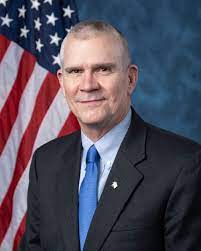WASHINGTON, DC — While the rollout of VA’s new electronic health record (EHR) has been paused indefinitely as the department works with the developer to address serious flaws in the system, legislators are worried about ongoing issues at the sites where the new EHR has already been introduced. Specifically, they expressed concern about the system’s impact on these hospital’s pharmacy services, which have accounted for a significant portion of complaints.
According to officials from VA and Oracle, who bought Cerner, the EHR’s original developer, last year, the complaints are related to select aspects of a pharmacy application called Medication Manager Retail and its interaction with the larger EHR. When the new system went online, the process for receiving and filling prescriptions was slowed tremendously, causing some hospitals to hire dozens more pharmacy staff in order to dispense them in a timely fashion.
While Oracle has released several updates intended to help correct these issues over the last few months, VA pharmacists have said that these have done little to impact their workflow and that the original problems remain.
“This has been one of the most error-ridden and dangerous parts of the system,” declared Rep. Matt Rosendale (R-MT), chairman of the VA House Subcommittee on Technology Modernization at a hearing last month. “Pharmacists cannot trust the system, so they have to work in a constant state of hypervigilance. The [Mann-Grandstaff VA Medical Center in Spokane] has been live on the Oracle-Cerner EHR for nearly 2½ years, and yet they continue to discover new problems every week.”
According to Rosendale, the subcommittee sent surveys to the five medical centers using the new EHR and received results from Spokane and Walla-Walla, WA; Columbus, OH, and Roseburn, OR.
“Patient safety reports are up over 300% since the EHR went live, and about a quarter of these incidents are directly related to pharmacy,” Rosendale said. “Medical centers have added an average of 20% more employees to do the same workload. Columbus had to dedicate a pharmacist to manage the Cerner help-desk tickets full time. And they created a management position in the pharmacy just to deal with the EHR.”
The subcommittee’s survey was in line with results from the Government Accountability Office (GAO), whose recent reports on the EHR have highlighted VA and Oracle’s neglect of user satisfaction in the rollout process.
“Users told us processing prescriptions took much longer in the new system, leading to increased backlogs and decreased efficiency, which led to patient safety concerns, because the pharmacy could not fill prescriptions in a timely fashion,” Carol Harris, GAO director of technology and cybersecurity, told the subcommittee. “A pharmacy department at one facility increased from 15 to 60 staff to deal with the increased workload associated with the system. … There are also multiple incidents of double prescriptions and incorrect medication orders.”
These issues have contributed to some of the lowest satisfaction scores for a major federal technology rollout ever recorded.
“Users of the new EHR are dissatisfied and this needs to be fully addressed before deployments resume,” Harris declared. “VA is well aware its users are unhappy with the system. Their 2021/2022 user satisfaction survey showed this. Only about 6% of users agreed the system enabled quality care, while 4% agreed the system has made them as efficient as possible. I’ve been auditing for about 20 years in government, and these are the lowest scores I’ve ever seen.”
Despite this, VA has yet to establish any formal metrics to track user satisfaction with the EHR, something GAO says will help ensure the system is not installed prematurely at other sites. “If the users are extremely dissatisfied, which is what we’re seeing now, the system is going to fail,” Harris said. “Because it’s not sustainable to have workarounds and ad hoc processes outside of the system. It’s just not a sustainable solution. VA lacks set goals for what constitutes user satisfaction.”
Oracle released updates to the EHR designed to address the pharmacy problems in February and late April, with another slated for late August. According to the subcommittee’s survey, pharmacists at the affected sites have been unimpressed with the updates, noting that the improvements have been incremental and have barely scratched the surface of priority pharmacy issues.
Mike Sicilia, executive VP of Oracle, testified that the reason these updates did little for VA pharmacists is because the department had prioritized fixing the physician side of the medication management equation and that future updates will focus on the pharmacy.
“I’m not completely surprised [at the dissatisfaction], given that the first three enhancements as prioritized by VA focus more on improving the ordering and provider experience,” Sicilia explained. “The next three are focused on the pharmacist experience.”
Those will come later this year and in early 2024, he said.

